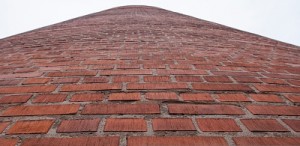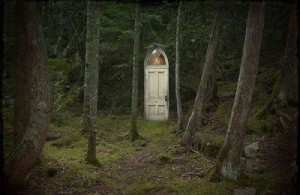It’s a problem we all encounter from time to time. Writers’ Block!
Having said that, I don’t believe in writers’ block, per se. But what I do believe is that sometimes, our imagination gets stuck on how to progress a story, and the more we focus on the fact that the writing has stopped, the more the psychological pressure increases, especially if there is a deadline, either self-imposed or externally imposed.
 How to break down this writing wall, which is stretching away from us, and growing higher all the time?
How to break down this writing wall, which is stretching away from us, and growing higher all the time?
The way to do this is to:
a) have a break from writing. Don’t feel like you’re forcing yourself away, or that you’re giving yourself a break so you can worry about the writing some more. Tell yourself you’re going to take a day’s break, not think about writing, do something else entirely. Go to the beach. Go shopping. Watch a film or a concert. Something that can take your focus away from writing, and give your “writing muscles” a chance to recover. Like we need sleep to regain our strength, writing muscles need a complete break every now and again
b) When you come back to writing again, do something completely unconnected to your writing project.
I have tried these three exercises before, and they have worked.
Exercise One
Write 3 sentences, each one from a different viewpoint from wherever you’re sitting. Turn on your chair, look through a window, look really closely at the items on a shelf. The subject doesn’t have to be anything poetic or literary, but you should try and work as much poetry (in prose form) into the sentence. The more poetic about the more mundane, the better. For example (and I’m not that a good writer): The wooden magazine file, dull brown, joints exposed to the grainy early evening light, were lined up perfectly with the edge of the shelf – except one, the rogue, the exception, the wild one, which, like an artist, dares to be different.
Exercise Two
Hold your arms out in front of you, and form a circle or a square hole with your fingers, around an inch or so across. Look at what you see there, and write a hundred words. Just a hundred. Find something reasonably interesting (not a blank wall!) and write exactly what you see, in as colourful prose as you can get.
Here’s an example I did, seeing a wall across the road from my house:
The red-brown of the bricks, solid and reliable, marking out a territory, keeping invaders out. “This is my land”, they say. Or they would, if they could speak. Atop them, grey-white concrete blocks add decoration. They have swirls moulded into them, gaps through which bushes and flowers can peep through, and say “come, we’re not dangerous or unwelcoming”. Green and dusty brown from a harsh winter with little sun and plenty of rain, they are waiting for the early spring sun to enliven them. As it does each year, without fail. Sometimes early, sometimes late, but always spring follows winter.
Exercise Three
 Here’s a picture of a door. In a forest. What’s going on here? Who is approaching it? What do they do? Where will it lead? What’s it doing there?
Here’s a picture of a door. In a forest. What’s going on here? Who is approaching it? What do they do? Where will it lead? What’s it doing there?
I’d like you to write a drabble (exactly 100 words) about this door.
Here’s mine:
Colin paused, bending double, his breathing slowing, ruing all those expense-account lunches. He straightened again, looking up at the sky. In the distance, dark clouds were gathering. He turned, and his breath caught in his throat.
“What the …?”
Nestled amongst the trees, a door – white paint peeling and faded, innocuous in the natural surroundings. A glassed Gothic arch above, bled feeble yellow light into the deepening gloom. He approached, slowly, carefully, dried twigs snapping under his feet. Despite the obvious anachronism, he couldn’t dispel the his feeling of unease as he extended his hand towards the round, brass handle.
Anyway, let me know how you get on. I’m no trained psychologist, nor a ‘wellness expert’, but I’m a writer, and I know what goes on in writers’ heads.